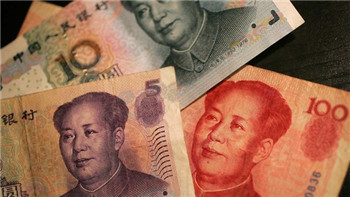(单词翻译:单击)

When China’s central bank last week triggered the two biggest single-day falls in the renminbi since the 1990s, plenty of people were keen to proclaim a resumption of the currency wars that have been a feature of the global economy since the 2008 financial crisis.
上周,当中国央行触发自上世纪90年代以来最大的两个人民币单日最大跌幅时,很多人都敏锐地宣告汇率战争重新开始。自2008年金融危机以来,汇率战争已经成为全球经济的特征之一。
But if Beijing’s move prompted a predictable political response from currency warriors in Washington and other capitals, it ignored what many trade economists see as an increasingly well-documented fact: currencies are not the trade weapon they once were.
但是,如果北京此举引发美国以及其他国家政府的“汇率战士”可以预见的政治回应的话,这便忽视了一个如今在很多贸易经济学家看来日益得到充分证明的事实:作为贸易武器的汇率跟过去不一样了。
In a new study of 46 countries including China, economists at the World Bank found that currency devaluations were these days only half as effective a tool for boosting exports as they were in the mid-1990s.
在一项对包括中国在内的46个国家所做的新研究中,世界银行(World Bank)的经济学家得出,作为推动出口的工具,如今货币贬值的效果仅为上世纪90年代中期时的一半。
Moreover, the World Bank economists found the further countries became integrated into the global economy — as China has done in spectacular style since the 1990s — the less the effect was likely to be of any currency changes on their exports.
此外,世界银行的经济学家发现,国家融入全球经济的程度越深——上世纪90年代以来中国令人瞩目地实现了这种融入——汇率变化对出口可能带来的影响就越小。
For countries that weaken their currencies to seek competitive advantage in global trade there is a “distinction between the perception of the impact of a depreciation and the actual impact a depreciation can have”, says Michele Ruta, one of the study’s authors. The reality today, he says, is that years of data show the impact is likely to be much less than it used to be.
该研究的作者之一米歇尔脠咜(Michele Ruta)称,对于压低本币汇率以寻求在国际贸易中获得竞争优势的国家而言,“关于贬值能带来多少影响,预期与实际情况存在差异”。他称,如今现实情况是,多年的数据表明,贬值的影响很可能比过去低得多。
There are a number of reasons for that. But the biggest, say Mr Ruta and his colleagues, is the development of global supply chains in the past two decades and the reality that many products today are agglomerations of parts made in many different countries.
造成这种情况的原因有很多。但是,鲁塔及其同事称,最大的原因是,过去20年全球供应链得到发展以及如今很多产品都是由很多产自不同国家的部件组装而成的。
The result is a much more complex calculus for many economies, including China.
其结果是,对于包括中国在内的许多经济体而言,计算贬值影响的方法变得复杂得多了。
Weaker currencies still lower the cost and therefore raise the international competitiveness of many goods exports while increasing the cost of imports. For something as simple as a bottle of Australian Shiraz from grapes grown on Margaret river vines, that reality still holds and matters. A weak Australian dollar will lower the cost of an exported bottle and make it more attractive to offshore consumers. It will also increase the price of imports into Australia of French or Chilean rivals.
汇率走低仍然会降低很多商品的出口价格、从而提升它们在海外的竞争力,与此同时增加进口的成本。对于一些简单的产品,比如一瓶由玛格丽特河(Margaret river)产区的葡萄酿造而成的澳大利亚西拉(Shiraz)葡萄酒,这一论断仍然成立、并且仍是重要的。澳元走低将降低这瓶葡萄酒的出口价格,提高它对海外消费者的吸引力,同时提高澳大利亚从法国或智利的竞争对手进口葡萄酒的价格。
But for more complex products, like many of the electronic items assembled in China, the real impact is far more difficult to calculate.
但是对于更加复杂的产品,比如很多在中国组装的电子产品,汇率走低的实际影响计算起来要困难得多。以智能手机为例,屏幕可能是从日本进口的,主芯片可能是从韩国进口的,其他部件在东南亚、欧洲和美国采购。所以,尽管人民币贬值理论上降低制成品销往海外的价格,但它也提高了进口部件的成本。


